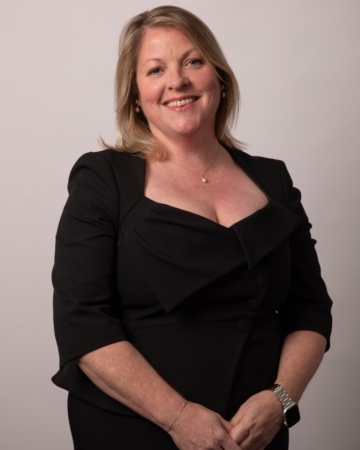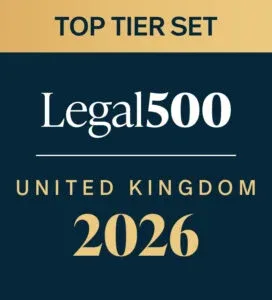Recent Gender Dysphoria Cases
Added in: Private Children Law
Applications concerning medical intervention/treatment for children experiencing gender dysphoria remains controversial. It is a topic increasingly the subject of private law applications, typically where the child’s parents are not in agreement about the prospect of medical intervention and the Court is asked to determine an application to either provide, or prohibit, access to treatment.
The Cass Review final report was published on 10th April 2024. The report was commissioned by NHS England to make recommendations on how to improve NHS gender identity services.
https://cass.independent-review.uk
Two very recent judgments have considered the legal approach in respect of children who seek medical intervention by way of cross-hormone treatment, or who have in fact already embarked on such a course. They are both in the Family Division and both provide an interesting and helpful reminder of the relevant legal principles to be considered.
In Re J (Transgender: Puberty Blocker and Hormone Replacement Therapy)[2024] EWHC 922 (1st May 2024) Sir Andrew McFarlane, The President of The Family Division handed down an interim judgment in ongoing proceedings concerning a young person aged 16 ½ who was assigned female sex at birth but whom for some time regarded himself as male. The case concerned the child’s capacity to consent to receive hormone treatment and whether in any event the court should exercise its powers to prevent further hormone treatment. The Judgment was drafted largely prior to the final Cass Report and as such the Court deliberately did not consider it prior to completing the judgment. The father sought to persuade the court that the court ought to oversee any hormone treatment for children under the age of 18.
In O v P & Anor [2024] EWHC 1077 (8th May 2024) Mrs Justice Judd was similarly concerned with a young person aged 16 who was assigned female sex at birth but whom for some time regarded himself as male. The child’s mother had applied for a prohibited steps order to prevent cross hormone treatment being commenced, although with the agreement of all parties the child had joined the waiting list for NHS treatment. The mother also sought a declaration that any prescribing of puberty blockers or gender affirming hormones should remain under the oversight of the Court until the child reached 18.
The President acknowledged that the courts approach to issues relating to gender dysphoria is still developing and he was asked for provide guidance in respect of lessens learned. It is a helpful judgment and overview for all family court practitioners. Providing clarity in respect of relevant terms and established legal principles.
Capacity to consent to medical treatment is self-evidently of significance in these cases. When a child is over 16 the position with respect to capacity to consent to medical treatment is established by the Family Law Reform Act 1969,
Section 8:
The consent of a minor who has attained the aged of sixteen years to any surgical, medical or dental treatment which, in the absence of consent, would constitute a trespass to his person, shall be as effective as it would be if he were of full age; and where a minor has by virtue of this section given an effective consent to any treatment it shall not be necessary to obtain any consent for it from his parent or guardian.
However, s8 does not entirely exclude the operation of the inherent jurisdiction. In Re W (A Minor) (Medical Treatment – Court’s Jurisdiction) [1993] Fam 64 the Court of Appeal held that the inherent jurisdiction remains, and the Court may override the consent given by a child over the age of 16 where the consequences of the decision are of sufficient gravity to justify the court’s intervention.
Such basic legal principles should not be lost sight of when exploring the nuanced and at times extremely controversial issues that such cases can give rise to.
In Re J the parties were in fact all agreed with the need for J to be referred to new service, Gender Plus, for an assessment over a period of six months. As such it was not appropriate for the court to grapple with the wider legal issues understandably identified by the father. The President noting
In the absence of intervention by Parliament, the court should be more careful to move forward on a case by case, decision by decision, basis so that the approach under the common law is developed incrementally as may be required, rather than by judicial diktat. [para 54]
In O v P & Anor the Court concluded that Q was entitled to consent to his own treatment, whether or not his parents agreed, and having considered all the relevant issues concluded there was no basis upon which the Court would override his consent to treatment by a regulated provider in this country, all parties agreeing he should not access offshore treatment.
The Court declined to make a declaration that puberty blockers or hormone treatment for children under the age of 18 should be subject to the oversight of the court. It is noted that in practical terms given the length of NHS waiting lists Q was likely to be over the age of 18 in any event before there was any prospect of treatment in any event.
Two further points to note. One of the key findings identified in the Cass Review was that
There are conflicting views about the clinical approach, with expectations of care at times being far from usual clinical practice. This has made some clinicians fearful of working with gender-questioning young peoples, despite their presentation being similar to many children and young peoples presenting to other NHS services.
In light of that perhaps the difficulty experienced in both sets of proceedings in seeking to instruct an expert in this jurisdiction should not come as too great a surprise given the limited pool of practitioners and the potential for controversial headlines in response to any opinions expressed.
It proved to be impossible to find a Consultant Endocrinologist in this country who was prepared to give expert evidence. An expert in Australia was identified but in the event she did not engage with the process and the direction for expert evidence had to be discharged. In any event Q refused to agree to his medical records being disclosed. A Consultant Psychiatrist was identified, but Q refused to be assessed by him. He was reluctant at the start to be asked to engage in an assessment which was not part of an assessment/treatment pathway, and he refused altogether after finding an article online by the expert which led him to believe he could be sceptical about treatment for young people. That instruction therefore did not go ahead either. [emphasis added]
In Re J the Court was likewise unable to identify an expert in the UK prepared to report but had more success in engaging and expert in Australia, Dr Jacqueline Hewitt, a consultant paediatric endocrinologist in Melbourne. It is difficult to imagine any increase in enthusiasm of UK based practitioners willing to act as jointly instructed experts moving forward.
Finally it is proper to note the comments of Mrs Justice Judd in O v P in respect of the way the mother was characterised by those representing the child in some of the documents filed by his legal team. [para 50 – 55] The Court recognised that it was a difficult task in advocating both the child’s views and what was in his best interests. However, it appears the ‘toxicity of the debate’ infiltrated the language that was used by the guardian’s legal team to describe the mother.
- I do not find it surprising or unreasonable that, in having this issue affecting her own child, the mother has sought support from other people who share her views or that she has seeks to bring challenges through the courts. I know that Q believes that his mother has lied, or that she is motivated by wider political matters, but the fact that he holds these views does not mean that they are objectively correct. If he is being allowed or encouraged to believe his mother is behaving in this way then that is a great pity……
- I make it clear that in making these comments that I have sympathy for the father too……………..These parents and Q have been in a situation that would challenge anyone, especially when there is so little consensus anywhere about how children with gender dysphoria should be treated, and so little trust. Q will have been profoundly affected by his gender related distress, the hostility between his parents, and the effect on his close and wider family.
The toxicity of the debate has very much affected the parties in this case on a private level. It has also affected the court in that it has not been possible to obtain any independent medical evidence. Whilst there is a paucity of experts in some disciplines (radiologists and pathologists particularly come to mind) I have never encountered a case where there was simply no-one willing to provide such evidence for the court.
The difficulties in family dynamics and the strength of personal convictions and positions may be extreme and indeed polarising in some private law cases. But that should not inform the manner in which legal representatives articulate their clients’ cases. It is perfectly clear from reading these judgments that at times the hostility between members of the family is already extreme, without lawyers further fanning the flames.










